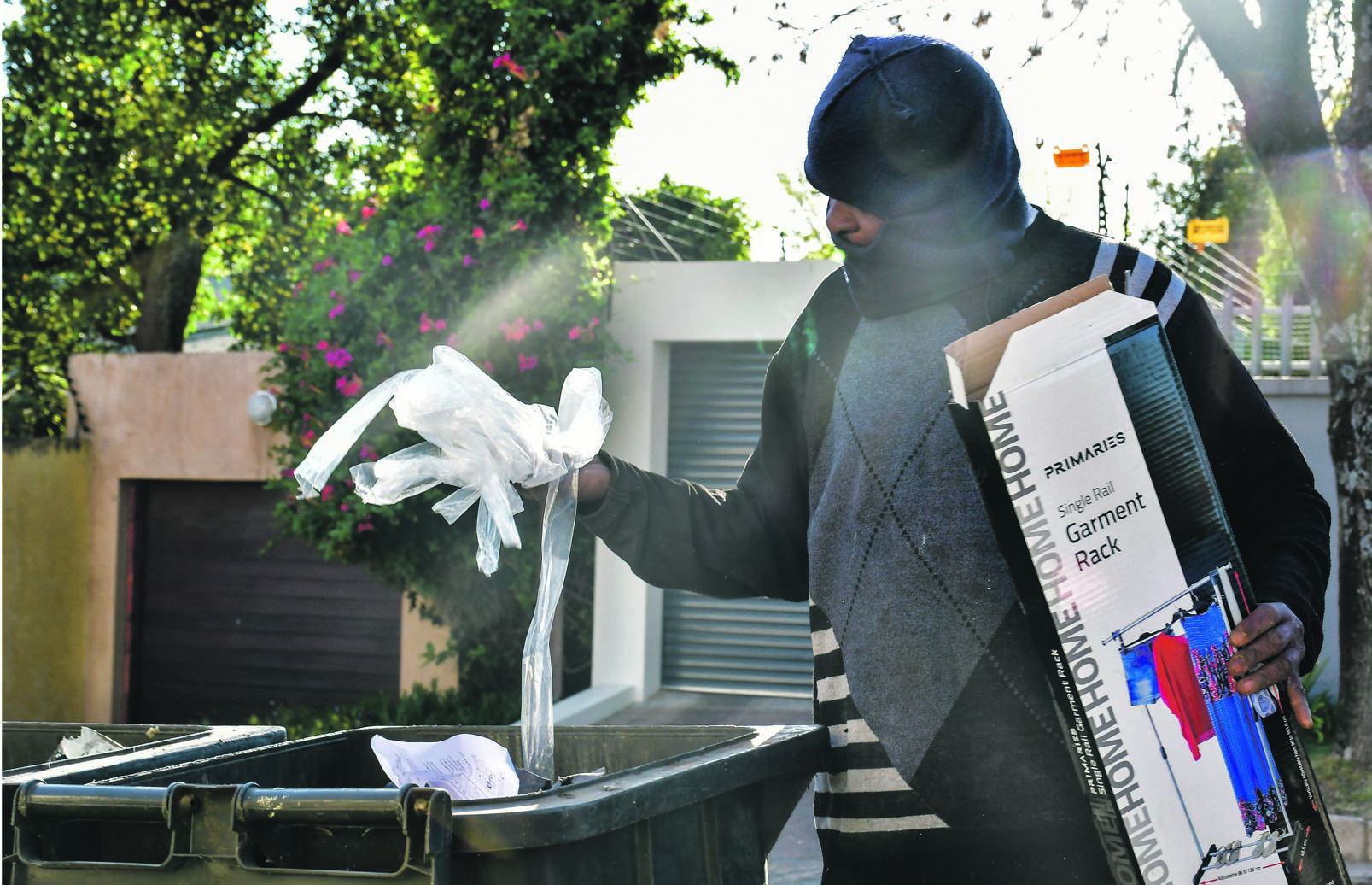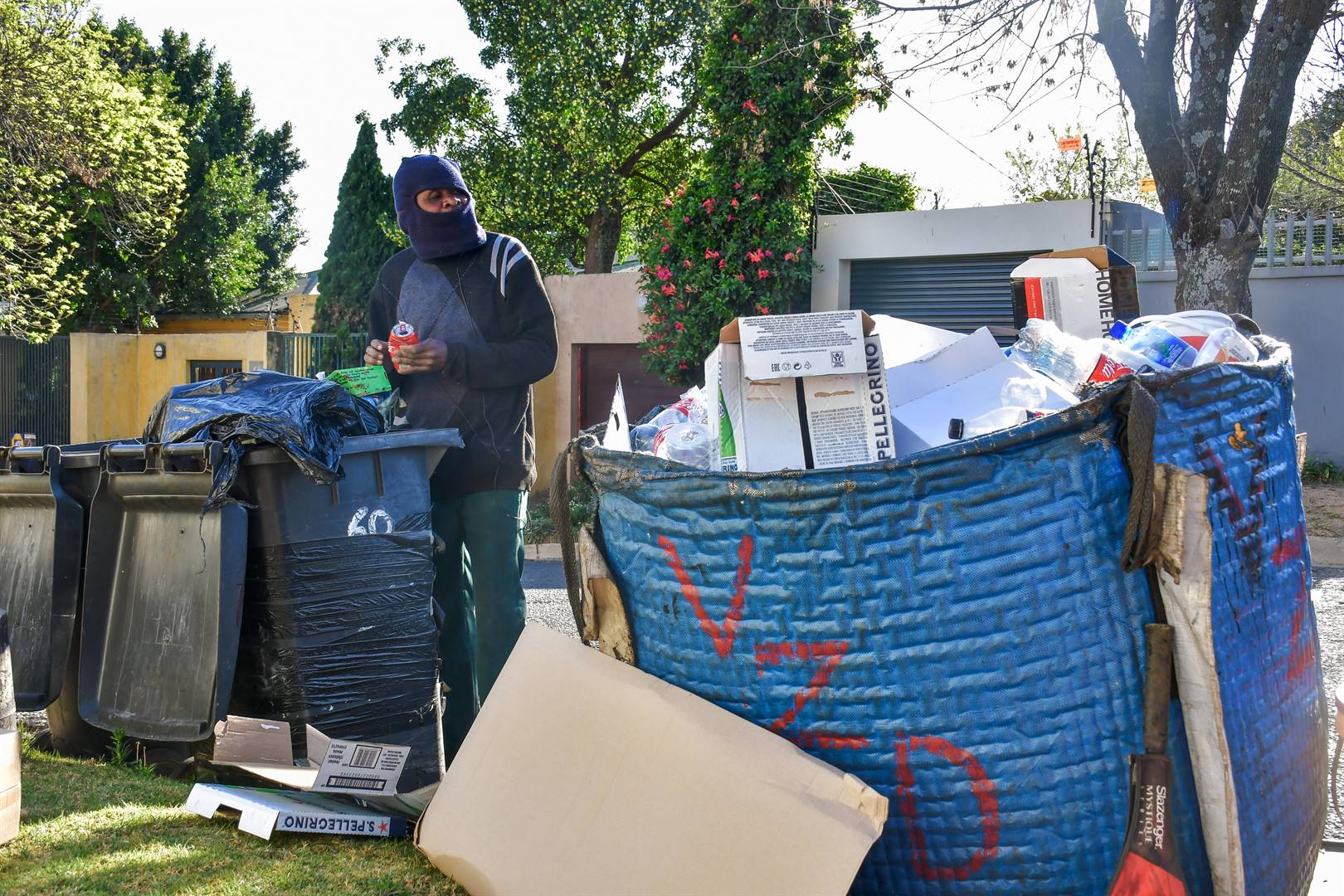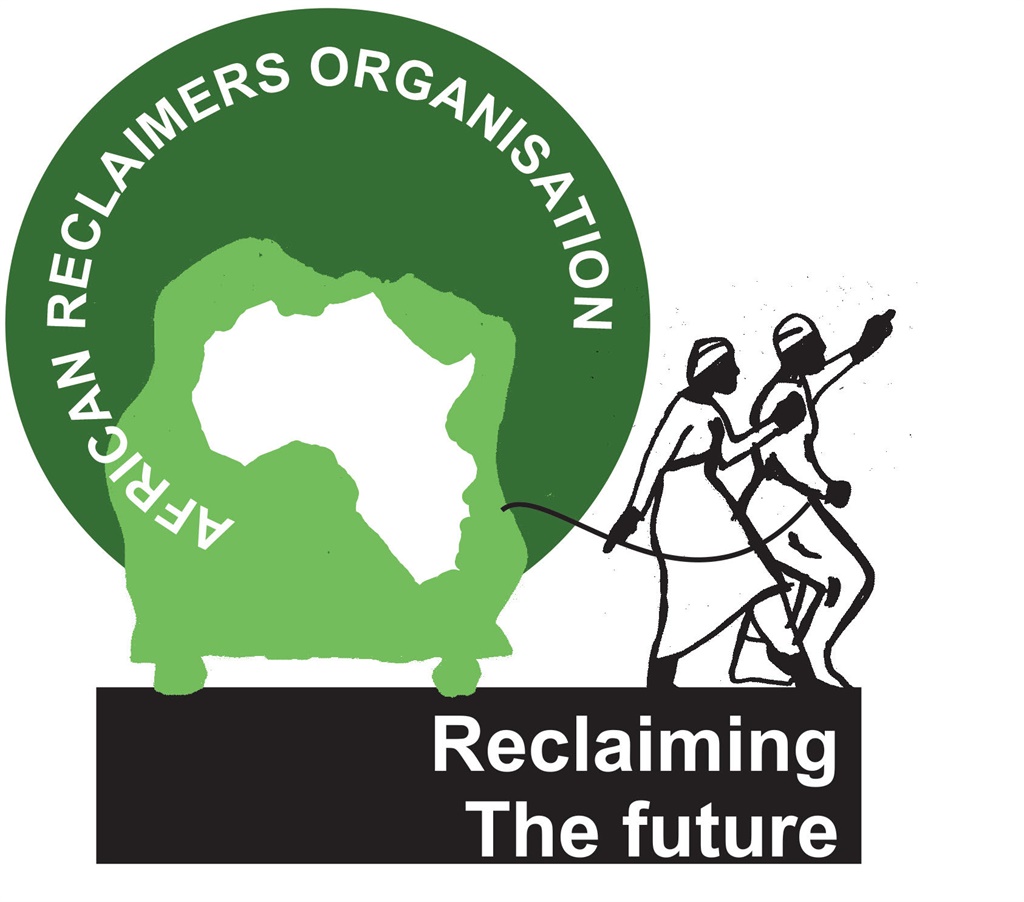
I first met Vusi on a cool, rainy Johannesburg morning. He had parked his cart outside my front gate and was waiting for the suburb’s residents to wake up and place their rubbish bins outside.
I live in a suburb where there is a recycling programme, so I have two clear plastic bags that are full of milk cartons, yogurt containers and the plastic wrappings from so many supermarket packages.
As I place them outside, I greet the man waiting to go through my rubbish. He looks cold and miserable, so I ask him for his name. He hesitates, and only gives me his name when I tell him who I am.
“Would you like some tea?” I ask. He accepts quickly. Inside, I find a large travel mug, make the tea and grab a packet of biscuits off the shelf.
And so, eight months later, Vusi and I chat, he helps me drag the rubbish outside and then sits down with the mug of tea, biscuits and the newspapers he finds in the recycling bags.
This week, I find him in another suburb. He has been going through rubbish since 5am, and his cart is almost full.
Vusi (48) was born in Soweto, matriculated there and got a job at a major supermarket chain. He then lost the job.
“I started picking up rubbish accidentally. I was looking for another job and then one day decided to get a cart and start picking up recycling stuff,” he says.
He lives in Fietas with his mother and siblings, and makes just enough money to get by. His family also supports him during rough times.
Like many other reclaimers, he has established routes. On Mondays, Tuesdays and Fridays, he focuses on the Melville and Westdene areas. On the other days, he ventures into Linden and Fairland. On average, he travels 20km to 30km a day.
“When I am finished, I go back home and start sorting what I’ve picked up. On Saturdays, I take everything to Newtown, where the recycling companies are, and, depending on what I’ve picked up, I get paid,” he says.
A good pay day is when he has loads of plastic and copper to sell.
But never mind the difficulty of the work and the distances he travels, the real problem for Vusi is safety. While the reclaimers look out for each other, and each have their own turf to pick from, they fight to get the best streets.
“Sometimes you get stabbed or robbed. They wait for us in Newtown and rob us,” Vusi says.
I ask him what kind of job he would rather have.
“I want to own my own recycling company. I know about recycling now,” he says. – Yvonne Grimbeek
South Africa is a step ahead of the Europeans when it comes to plastic recycling.
Last year, the recycling rate in South Africa was 46.3% for all plastic produced during the year, compared with a recycling rate of 31.1% in Europe, according to a report by Plastics SA.
The rate was even higher for used plastic bottles made from polyethylene terephthalate (PET) at 63%, or 98 649 tons of PET plastic bottles.
PET forms the basis for synthetic fibres like polyester and is used in the packaging industry as the rigid plastic used for a wide range of food and non-food applications, such as beverage bottles, peanut butter jars and dishwashing liquid.
According to Cheri Scholtz, the CEO of plastic recycling company Petco, an average of 6.2 million PET bottles are collected daily for recycling across South Africa.
Petco aims to recycle 70% of PET bottles by 2022 and, to reach this goal, all role players need to be involved – from the packaging industry to every consumer in South Africa.
Anton Hanekom, the managing director of Plastics SA, says South Africa is a world leader when it comes to mechanical recycling. This is the process during which plastic is washed, melted and made into pellets, which are then used to produce new plastic products.
However, a report by the World Wildlife Fund (WWF) states that “not all recycling is considered equal”.
The report states that upcycling is when something is recycled into another product of equal or greater value than the original product – think of ornamental lighting and art made from plastic bottles.
According to the WWF, most plastic recycling is downcycling as the recycled plastic products are of lower value than the original product and can only be used in limited applications.
“The exception is recycled PET bottles, which can be used in clothing, carpets and other products using polyester fibre, while some PET bottles now contain a portion of recycled PET,” says the WWF.
Everyone needs to join forces to tackle the growing waste challenge, says Dr Casper Durandt, the chairperson of Petco and head of sustainable packaging for Coca-Cola in southern and east Africa.
“Producers should design packaging that is 100% recyclable by eliminating colour, PVC and multilayer packaging,” he says.
Clear bottles have the highest commercial value for recycling. Light blue bottles are also acceptable as they can be blended in with clear bottles, says Scholtz.
Green and brown bottles are also recycled, but have a more limited end-use market and therefore a much lower value than clear bottles. However, Petco has two contractors that recycle green bottles into the straps used to tie goods on to trucks and in warehouses.
Designers are encouraged to consider alternatives such as perforated sleeves if colour is necessary, says Scholtz.
Multilayer packaging is where a product is packaged in different materials such as paper, plastic and foil. Filter coffee, toothpaste, processed meats, cheese and sauces are examples of such products. These materials can only be recycled if the layers can be separated as it is expensive and difficult to recycle.
Hanekom also emphasises the key role consumers can play to make the recycling process cheaper and more effective.
In South Africa, the largest quantity of recyclables – 70% – was obtained from landfill sites and other post-consumer sources.
“Landfill material is of poor quality and contaminated, so it is expensive to recycle,” warns a report by Plastics SA.
Hanekom says: “In the European community, local government and the plastics industry are all involved in getting the recyclables out of the waste stream as early as possible. Let’s remove recyclables from the waste stream at home. As a first step, put it in a clear plastic bag on top of your dustbin so that reclaimers can remove it.
“If there are no reclaimers in your neighbourhood, the bag will land up in a landfill, where the reclaimers there can easily identify and remove the recyclables.”
Hanekom also suggests that consumers rinse plastic containers in which products such as meat or yogurt was packaged before putting it in the recycling bin.
Consumers can also drop off plastic, glass and paper at recycling points (see box).
The recycling of PET bottles can be made easier by following the four C’s – consume (drink the contents), crush (crush the bottle), cap (put the cap back on) and classify (keep it separate from other waste).
Durandt says: “Of course, it’s tempting to romanticise a world without packaging – surely if we stopped producing glass, tins and plastic bottles, people and the planet would be better off?
“But this ignores some of the benefits of food and beverage containers – they help reduce food spoilage and waste, improve affordability of foodstuff and flexibility of portions, as well as limit the spread of disease. We need to maintain these benefits while minimising the impact of waste.”
International research has shown that the correct packaging can lengthen the shelf life of beef by up to six days. A cucumber will stay fresh for two weeks instead of three days if it is packaged correctly.
According to Plastics Europe, the shelf life of fresh food can be lengthened threefold with the correct packaging.
And, after all, plastic is already with us and it can take up to 1 000 years to degrade. With effective recycling, its impact on our environment can be drastically reduced.
This project is reported by City Press and sponsored by Coca-Cola Africa




 Publications
Publications
 Partners
Partners










